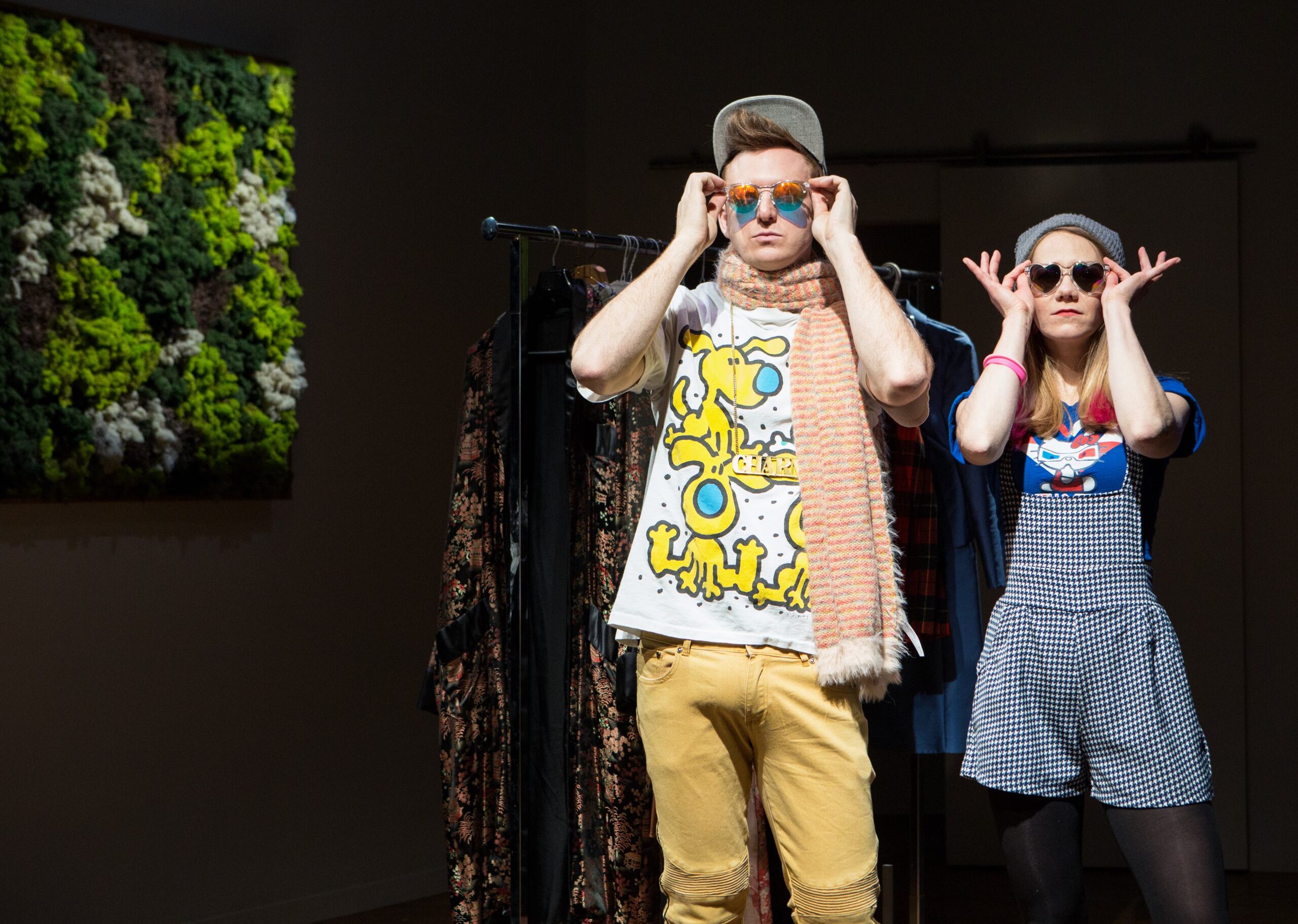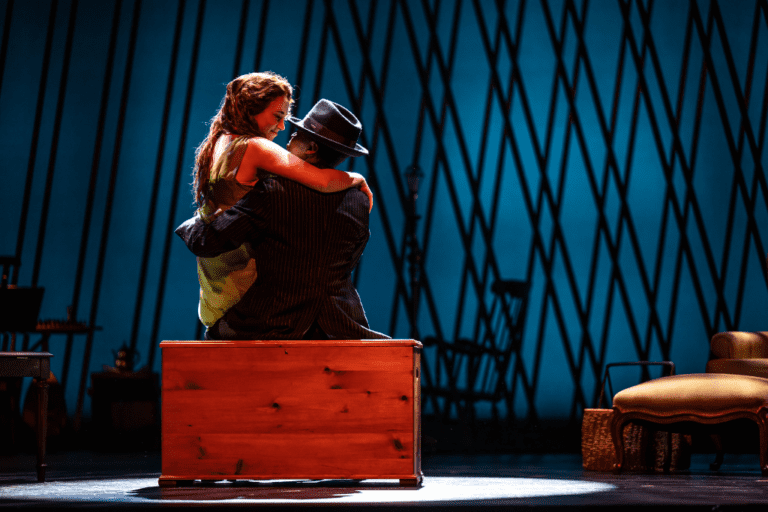Restoration Remix: The Pleasure and Pain of Self-Performance
“You’re not my psychoanalyst,” quips Charm to Teasel in Erin Shields’ new play, The Millennial Malcontent, as my character, Mimi, witnesses their showdown. Okay, well, actually, that line was cut the other day (#newplays #rewrites), but it’s a good one for me to keep in mind as I contemplate the online self-performance that is de rigeur these days, and which Erin holds up as a defining phenomenon of millennial existence. I certainly have my own theories about the abyss of need that underlies the flattering photos, pithy tweets, #humblebrags, cat videos, mud-slinging (err, I mean “debates”), travelogues, celebrity eulogies, and myriad other ways we virtually perform ourselves, but I’m no psychoanalyst. What compels our seemingly obsessive online engagement—be it a longing for validation, a genuine desire to exchange ideas, or perhaps simply a natural extension of our “analogue” selves—is the domain of the subjective, and far more qualified people than I have weighed in on it. What I hope we can agree on as fact is that the ubiquity and accessibility of online forums for self-expression has bred in us a heightened awareness of—if not a total preoccupation with—how we perform ourselves.
“Plus ça change, plus c’est la même chose.” Observation-cum-epigram (and tweet-manqué #afewcenturiestooearly) of French literary figure Jean Baptiste Alphonse Karr in the January 1849 issue of his journal, Les Guêpes. Literally translates to: “The more it changes, the more it stays the same.” Incidentally, a favourite quotation of my mum’s, and also what Erin might say about why she’s chosen to examine millennial culture through the lens of Restoration comedy—specifically, Sir John Vanbrugh’s 1697 piece, The Provoked Wife, from which The Millennial Malcontent is adapted.
For Erin, the marriage of millennial culture with the Restoration period is obvious because self-presentation is so prevalent in both. The Restoration period, and therefore its theatre, too, is punctilious in the codification of identity performance: the placement of a beauty mark on the face, the manipulation of a fan, the height and colour of a wig, the depth and dart of an eye in a bow and/or curtsey—these superficial, presentational cues are consciously manipulated to construct the self-image the individual wants the world to see. This directly parallels the kind of self-aware and often self-referential identity performance that happens today on social media platforms, where the “content” of one’s personal narrative is obsessively self-curated. Then, as now, we put ourselves on display.

Amelia Sargisson and Frank Cox O’Connell in The Millennial Malcontent. Photo by Cylla von Tiedemann
A big difference I see is that whereas our Restoration forebears found a great deal of “relish” (to use Restoration theatre guru Simon Callow’s word) in the performance of themselves, millennials seemingly experience a great deal of angst about it. In conversation with my castmates, several reveal they’re afraid of Facebook, that they don’t feel “safe” there. It’s not the first I’ve heard about stressing—agonizing, even—over status updates, tweets, and posts; whether the wording is right, whether the anecdote/joke/idea/photo is even worth sharing, whether it’ll be “liked.” The obsessiveness with which the latter is monitored is really killer. That for me is the insidious underbelly of self-performance extending now into the virtual: we’re relentlessly being judged in a very immediate and quantifiable way by a jury of our peers. It’s not judgement that’s the new crucible—that’s always been around—it’s that it’s morphed from something ethereal into something measured in views, in hits, in likes, in hearts, in happy faces. And participating in judging others in this way—in fact, even just participating in the more passive voyeurism of scrolling through the ol’ newsfeed—is well-documented as a depression-inducing habit. Thence the lack of relish. Thence the malaise. Thence the malcontent millennial.
Erin tells me about how, in her university days, she used to take her clothes off and run around naked at parties. (A woman after my own heart; although mum says I stopped doing this after the age of three.) She did it because it was funny and also to make fun. Because it was freeing and felt triumphant. But she speculates that if there’d been cellphones out documenting these youthful, Dionysian flights of ecstasy and irreverence, she probably wouldn’t have embarked upon them; that if they’d been captured and posted and judged out of context, it would have killed her feelings of joy and freedom and triumph. She mourns the fact that her daughters won’t have that same privacy to find themselves because of the omnipresent threat of being caught—and instantaneously critiqued—in all the clumsiness and awkwardness and painfulness of growing up. The privacy, the freedom, the relish (if you will) to be ourselves is eroding with the noxious pressure to perform and curate ourselves, and the harshness of being judged for that self-performance.

The Millenium Malcontent cast. Photo by Cylla von Tiedemann
I think my most “liked” social media status in recent memory said: “Facebook makes me feel like Holden Caulfield.” To me, this suggests that whomever gave it a “thumbs up” also identifies with a certain phoniness to the whole enterprise and relates to the deeply alienating experience of scrolling through his/her Facebook newsfeed (whilst simultaneously betraying his/her addiction to scrolling through said newsfeed). It also exposes my own hypocritical relationship to social media (if it stirs up feelings in you, Amelia, that can only be likened to the 300-page journey of Salinger’s angsty protagonist, why are you on there?), and, most significantly, it reveals that I feel (and, in truth, have always felt) like an outsider. It’s a great paradox of this world wide web of connectivity, isn’t it, that it amplifies feelings of isolation and loneliness… or just, like, this sense of: “Is there something I’m not getting?”
In The Millennial Malcontent, it so happens I’m cast as the outsider. Mimi is a visitor from a different culture, thrust into a new social context where, for the most part, she sees but is not seen; hears but is not heard. And there, on the outskirts, Mimi—like me, like all people who feel a bit apart—gets to watch, study, and interpret the endless permutations of self-performance happening all around her. Out of the spotlight, she’s relieved of the pressure to perform and gets to just be; she’s discovered rather than presented. Inhabiting this character has reawakened in me the pleasure of harbouring a secret self, and safeguarding its privacy rather than turning it inside out to generate content, a Snapchat-able exoskeleton. Maybe the relish of that secrecy is a perfect antidote to self-presentation. Maybe the possibility that we’re ultimately unknowable, despite the great deal of time and thought we invest in making ourselves known this way or that, is a beautiful thing. Maybe, as Dickens wrote a century ago, it’s “a wonderful fact to reflect upon, that every human creature is constituted to be that profound secret and mystery to every other (…) that every beating heart, in the hundreds of thousands of breasts (…), is, in some of its imaginings, a secret to the heart nearest it!”
The Millennial Malcontent, starring Amelia Sargisson, is on at Tarragon Theatre until April 9.
For tickets or more information, click here








Comments